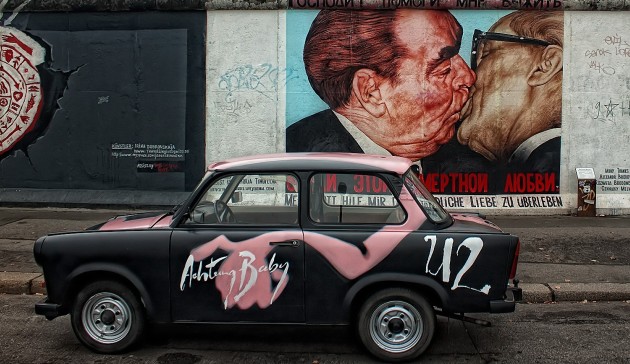Module details
- Offered to 3rd & 4th Years
- Thursdays 16.00-18.00
- Planned delivery: Online with in-person activities
- Two-term module, worth 5 ECTS
- Available to eligible students as part of I-Explore
- Extra Credit, or Degree Credit where your department allows
This module studies what we see in the news, on billboards, social media, museums, and public spaces, and explores what these images and artefacts tells us about society, how we perceive it, and how we identify with it.
We will consider the relationship between power and knowledge and think about how power relations in society affect the production, circulation and consumption of culture. We will examine changing ideas of high and low culture, how signifiers of identity - including gender, class, race, sexuality - are constructed and presented, and the role of emerging technologies in patterns and redefinitions of social relations.
This module will be complemented with museum and gallery visits, as well as external speakers such as international and national artists, activists, industry experts among others.
Please note: The information on this module description is indicative. The module may undergo minor modifications before the start of next academic year.
Information blocks
On successful completion of this module, you will be able to:
-
Analyse concepts of culture, social structures, knowledge and power.
-
Develop a historically-informed understanding of the concept of culture.
-
Appraise ideas of power and knowledge emerging from artists, practitioners and academics seeking to decolonise contemporary visual cultures.
-
Synthesise and evaluate information, arguments and assumptions from different sources.

-
The Image World: How images and, more broadly, visual culture shape our lives and social relations
-
Myth making & methodologies
-
Ideology and visual culture
-
Activism
-
Technology, imagery and power
-
Intersectionality and Cultural Appropriation
-
Gender and Sexuality
-
Feminisms
-
Post-colonialism and race
-
Human and post-human bodies
- Range of research materials, including online videos.
- Collaborative research tools.
- Coursework: Written Exercise - Semiotic Analysis - 1000 words (30%)
- Practical: 5-minute Oral Presentation - Critical Review of an Exhibition (30%)
- Coursework: 10-minute Video Essay - Self-selected Title (40%)
- Requirements: You are expected to attend all classes and undertake approximately 85 hours of independent study in total during the module. Independent study includes reading and preparation for classes, researching and writing coursework assignments and preparing for other assessments.
- This module is designed as an undergraduate Level 6 module. For an explanation of levels, view the Imperial Horizons Level Descriptors page.
"Hands down the best module I've done this year. Really enjoyed the course, helped me really connect to popular culture in a way that I have wanted for a long time. Essays were interesting topics and some of the work I'm most proud of, a sign of a really stimulating course!"
"Very intellectually stimulating course, would recommend to others."
"Amazing module... It has far exceeded my expectations. It has really developed by understanding of culture, society, people, ideas, discourse... The conversations are fascinating, and on multiple occasions the two hours of the session fly by leaving me disappointed that it's over. "
"A really interesting module. It was well structured, starting by introducing semiotic analysis and ways of looking at images early on. The courseworks were good development opportunities as they helped develop a range of skills as well as knowledge (essay writing, presentation skills, group work, debating, and film making)."
Got any questions?
Contact the lecturer
Dr Gus Subero
g.subero-borjas@imperial.ac.uk
